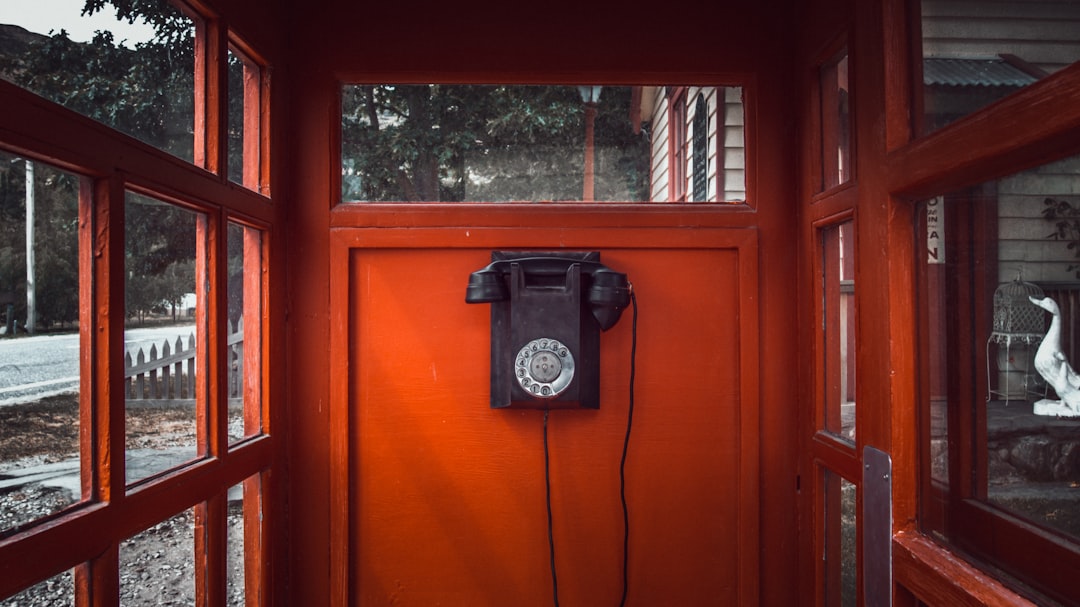Robocalls have become a significant issue in Utah, causing privacy intrusion and sleep disruption. With stringent privacy laws, residents seek legal action against unwanted calls, prompting questions like "Can I Sue For Robocalls Utah?" Advocacy groups play a vital role in educating the public about their rights, advocating for stricter regulations, and providing support for understanding legal options. They combat robocallers through public awareness campaigns and legal efforts, including individual and class-action lawsuits under the Telephone Consumer Protection Act (TCPA). By combining education and legal support, these groups empower Utah residents to protect themselves from nuisance calls and hold intrusive callers accountable, including potential legal avenues for compensation.
In Utah, robocalls have become a ubiquitous nuisance, impacting millions with unwanted calls daily. Advocacy groups are emerging as powerful allies in the fight against these automated intruders. This article delves into the growing role of advocacy organizations in Utah’s robocall landscape, exploring legal rights and options for residents considering legal action under ‘Can I Sue For Robocalls Utah’. We examine effective strategies these groups employ to combat robocallers and discuss the future of regulation in protecting consumers from nuisance calls.
Understanding Robocalls and Their Impact in Utah

Robocalls have become a pervasive issue in Utah, with many residents frustrated by unwanted and often disruptive automated calls. These pre-recorded messages, often used for political campaigns or telemarketing, can leave recipients feeling invaded and annoyed. In Utah, where privacy laws are stringent, many wonder if they have the right to take legal action against these intrusive calls—a question that leads to the query: Can I Sue For Robocalls Utah?
The impact of robocalls is significant, with studies showing increased stress levels and disrupted sleep patterns among recipients. In a state like Utah, known for its active political scene, residents are especially targeted by these calls during election periods. Advocacy groups play a crucial role in fighting back against this nuisance by educating the public on their rights, advocating for stricter regulations, and providing support for those considering legal action, including exploring Can I Sue For Robocalls Utah.
The Rise of Advocacy Groups in Combating Robocalls

In recent years, as technology advances, so do the methods of unwanted communication, with robocalls becoming a significant nuisance for many Utah residents. This has led to a natural response from the public – forming advocacy groups dedicated to tackling this issue. These groups play a vital role in advocating for better regulations and raising awareness about the negative impact of robocalls. With the rise of these automated calls, especially those deemed fraudulent or harassing, Utah citizens have united to fight back.
Advocacy organizations are now at the forefront of the battle against robocallers, often representing the collective voice of affected individuals. They lobby for stricter laws and policies regarding telemarketing practices, ensuring that businesses adhere to ethical standards. Furthermore, these groups provide a platform for like-minded people to share experiences, offer solutions, and even explore legal options, such as understanding Can I Sue For Robocalls Utah, to hold perpetrators accountable.
Legal Rights and Options for Utah Residents: Can You Sue?

Utah residents facing unwanted robocalls have legal rights and options available to them, including the potential to take legal action. According to the Telephone Consumer Protection Act (TCPA), it’s illegal for businesses or political organizations to make automated calls to phone numbers listed on the National Do Not Call Registry without prior consent. If you’ve received a robocall in Utah, you can file a complaint with the Federal Trade Commission (FTC) or your state attorney general’s office. These agencies investigate complaints and can take action against violators.
While individual lawsuits for robocalls are possible, they can be complex and costly. However, class-action lawsuits have been successful in holding companies accountable. If you believe you’ve been harmed by robocalls, gathering evidence like call records and identifying the caller is crucial. Consulting with an attorney specializing in consumer protection law can help determine your best course of action, including the possibility of seeking compensation for unauthorized calls.
Effective Strategies Advocacy Groups Utilize Against Robocallers

Advocacy groups in Utah have employed several effective strategies to combat robocallers, who are known for their relentless and often nuisance calls. One key approach is public education; raising awareness about robocalls and providing practical tips on how to avoid or handle them. This includes encouraging residents to register for Do Not Call lists, block unknown numbers, and be cautious when sharing personal information online.
Additionally, these groups actively support and guide individuals who wish to take legal action against robocallers. They help Utah residents understand their rights regarding unwanted calls and assist in navigating the process of filing complaints or even suing for robocalls, including exploring options under Utah’s consumer protection laws and regulations. Their collective efforts have contributed significantly to creating a more robust defense against these intrusive phone calls.
The Future of Robocall Regulation and Consumer Protection

The future of robocall regulation and consumer protection in Utah is an evolving landscape, with advocacy groups playing a pivotal role. As technology advances, so do the tactics of telemarketers, making it a constant cat-and-mouse game. In response, lawmakers are continually updating laws to keep up with these changes, aiming to provide better safeguards for consumers. One significant aspect that’s gaining attention is the potential for individuals to take legal action against excessive or harassing robocalls. Utah residents who feel they’ve been wronged by unwanted calls may explore their options, including suing for damages under state and federal regulations, which could serve as a powerful deterrent for businesses engaging in these practices.
Advocacy groups are pushing for stricter enforcement and more robust legal protections, arguing that current measures aren’t always effective in stopping the deluge of robocalls. They advocate for improved call tracking systems, enhanced data sharing between telecommunications companies, and better consumer education to help people identify and report suspicious calls. By combining these strategies with legal avenues like suing for robocalls in Utah, there’s a growing movement to reclaim personal space from unwanted intrusions, ensuring that consumers can once again enjoy peace of mind when their phones ring.






